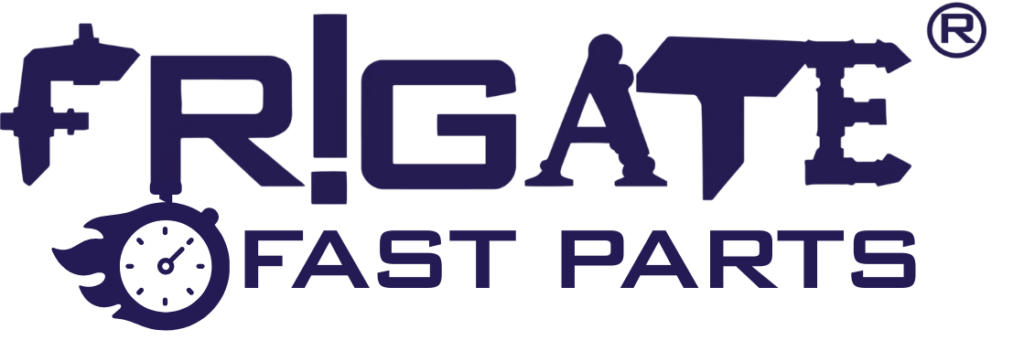CNC Machining for Telecommunications Equipment
Frigate machines chassis and interface blocks with flatness within 5 microns to support multi-layer PCBs. Precise standoff and datum control ensure stability under mechanical and thermal stress.
Our Clients



































- Precision at Every Stage
High-Tolerance Production of Structural and Thermal Parts
Enabling micron-level tolerances, optimized thermal conduction paths, and modular mounting interfaces for advanced RF and electronic assemblies.
EMI/RFI Shielding Precision
Frigate machines gasket grooves and joining zones with ±0.01 mm tolerance and surface finish Ra ≤ 0.4 µm, ensuring reliable shielding compression with conductive elastomers or fingerstock in high-frequency telecom enclosures.
Thermal Management Optimization
Advanced CNC toolpaths and thermal modeling optimize heatsink and cold plate contact areas. Flatness and finish on copper and aluminum alloys maximize thermal interface material efficiency, reducing hotspots in high-power RF modules.
Serviceable Mounting Design
Mounting brackets and interfaces are machined with sub-20 micron positional accuracy for precise alignment with blind fasteners and connectors. Layout supports tool-less subsystem removal, reducing field maintenance time and risk of damage.
- Step-by-Step Machining Approach
Our CNC Machining Process
Frigate uses advanced CAD/CAM, in-process metrology, and adaptive toolpaths to ensure consistent dimensional accuracy and material quality for complex telecom parts.


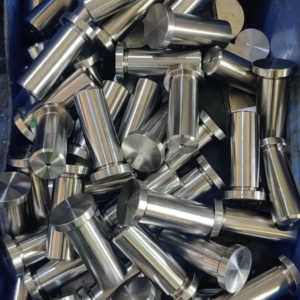

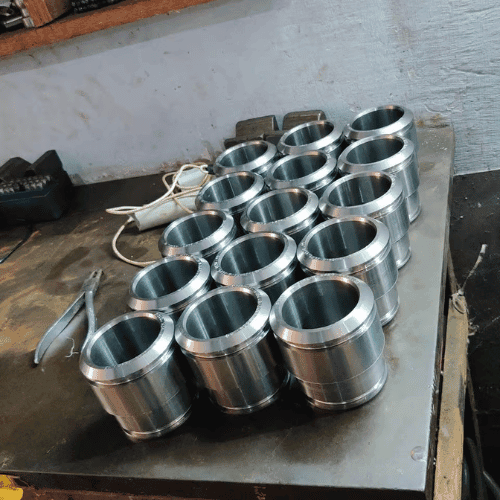

Advanced algorithms optimize tool paths, minimizing tool wear, reducing cycle times, and improving surface finishes. This involves strategically planning the sequence of movements and cuts to enhance efficiency.
Modern CNC machines often utilize 5-axis or even 6-axis capabilities, allowing for complex geometries and intricate shapes. This reduces the need to reposition the part, ensuring higher accuracy and a more refined finish.
CNC machines may integrate adaptive cutting strategies, where cutting conditions (speed, feed, depth of cut) adjust dynamically based on real-time sensor feedback or cutting force monitoring. This helps prevent tool breakage and ensures optimal material removal rates.
Specialized techniques like high-speed machining enable faster spindle speeds and advanced feed rates. This increases material removal rates while maintaining fine tolerances and reducing thermal distortion.
Some CNC setups incorporate in-process measuring systems (like laser scanners or probe-based systems) to check the part’s dimensions as it’s being machined. These systems can send real-time data back to the machine, allowing for automatic adjustments during production.
CNC machines with automated tool changers enhance efficiency by switching tools automatically without operator intervention. This allows for uninterrupted multi-operation machining without downtime, improving productivity in complex jobs with several cutting tools.
- Real Impact
Words from Clients
See how global OEMs and sourcing heads describe their experience with our scalable execution.
“Quick turnaround and solid quality.”
“The instant quote tool saved us time, and the parts were spot-on. Highly recommend Frigate!”
“I would strongly recommend Frigate to anyone who wants to do Rapid Prototyping, and take their ideas to manufacturing. One firm doing all kinds of Product Development!”
“Great service, fair price, and the parts worked perfectly in our assembly.”
“Top-notch machining and fast shipping. Very satisfied with the results.”
“The next disruption is happening in Prototyping & Manufacturing on-demand and Frigate is leading the way! I personally believe the Frigate's way of IIOT enabled cloud platform with Al.”
“Frigate delivered high-quality parts at a competitive price. The instant quote tool is a huge plus for us!”
“We appreciate the precision and quality of the machined components in the recent delivery—they meet our specifications perfectly and demonstrate Frigate’s capability for excellent workmanship.”
“Flawless execution from quote to delivery.”
“I am absolutely happy to work with supplier like Frigate who were quite proactive & result oriented . Frigate has high willingness team who has strong know how & their passion towards the products & process were absolutely thrilling.”
“The precision on these parts is impressive, and they arrived ahead of schedule. Frigate’s process really stands out!”
“Parts were exactly as spec’d, and the instant quote made budgeting a breeze.”
“Good value for the money.”
“The finish was perfect, and the team was easy to work with.”
“Working with Frigate has been great. Their proactive, results-driven approach and expertise shine through in every project. It's been a pleasure collaborating with them.”
"We are highly satisfied with the timely delivery and quality of the MIG Welding Cable from Frigate. Their attention to detail, secure packaging, and quick responsiveness stood out. We confidently recommend Frigate Engineering Services Pvt. Ltd. as a reliable manufacturing partner."
- Surface Finish
Flawless Finishes for CNC Machining Parts
Machining achieves fine surface roughness (Ra ≤ 0.4 µm) for critical contact zones. Precise deburring and edge blending support reliable EMI shielding and efficient thermal interface performance.
Anodizing
Give your aluminum parts a tough, corrosion-resistant shield with anodizing, reaching surface hardness up to HV 500, while enhancing electrical insulation and durability.
Mechanical Finishing
Smooth out imperfections and refine surfaces to Ra 0.2 µm or better with mechanical finishing techniques like grinding, polishing, and bead blasting.
Heat Treatment
Boost material strength and hardness by heat treating parts at temperatures up to 1100°C, ensuring they meet the mechanical demands of your application.
Electroplating
Add protective or functional metal coatings with electroplating, delivering consistent layers as precise as ±2 µm for improved corrosion resistance and conductivity.
Our Machined Products
We support your production needs with CNC-machined parts, subassemblies, and performance-critical components.
- Machining Capabilities
Complex Geometry Machining for Telecom System Components
Enables micron-level control over cavity depth, concentricity, and surface topology across conductive alloys and hybrid assemblies used in high-frequency and thermally loaded telecom systems.

CNC Milling
We support enclosure cavity machining with controlled step-depth, counterbore finishing, and integrated heat sink feature milling.
- Spindle setup up to 20 kW with fine-feed control for thin-wall structures
- Milling brass inserts, aluminum 6063, and custom extrusions with high repeatability

CNC Turning
We handle connector sleeves, adapter rings, and interface collars with tight radial runout control.
- Turning for diameters from 6 mm to 400 mm
- Live tooling supports radial slots, face grooves, and cable relief features
- Material Selection
Machinable Alloys for High-Frequency and Structural Performance
Materials are selected for thermal conductivity, dimensional stability, and RF behavior. All grades support tight tolerances, surface finish consistency, and telecom-grade durability.
- Used for enclosures and heat sinks with thermal conductivity around 160–170 W/m·K
- Applied in RF signal paths with electrical conductivity above 100% IACS
- Supports corrosion-resistant mounting features with high tensile strength (~500 MPa)
- Enables high-speed threading and fine-detail machining with low tool wear
A2 Tool Steel is a high-carbon, high-chromium steel known for its toughness and wear resistance. It’s ideal for producing durable, high-strength parts that can withstand heavy use.
Aluminum is a lightweight, corrosion-resistant metal with good machinability. Because of its strength-to-weight ratio, it’s commonly used in aerospace, automotive, and various industrial applications.
Brass is a copper-zinc alloy known for its machinability and corrosion resistance. It’s used for components requiring precise detailing and good mechanical properties.
Bronze is a copper-tin alloy with excellent wear resistance and strength. It’s often used for bushings, bearings, and other friction-prone components.
Cast Iron is known for its high wear resistance and machinability. It’s used in heavy-duty applications such as machinery parts and engine components.
Copper offers excellent thermal and electrical conductivity. It’s used in applications requiring heat dissipation or electrical conductivity, such as electronic components.
Steel is a versatile material known for its strength and durability. It’s used in various applications, from construction to automotive parts.
Titanium is a lightweight, high-strength metal with excellent corrosion resistance. It’s used in aerospace, medical implants, and high-performance engineering applications.
Stainless Steel offers high corrosion resistance and strength. It’s widely used in applications ranging from kitchen equipment to industrial machinery.
Zinc is a ductile and corrosion-resistant metal known for its excellent machinability, especially in its alloy forms. It's often used for components requiring intricate details, good surface finish, and precise dimensions, commonly found in automotive, hardware, and electrical applications.
- Thermal Management
Key Highlights
CNC operations are configured for dimensional accuracy, surface integrity, and feature repeatability critical to RF, thermal, and structural telecom hardware. All processes are validated for high-reliability field deployment.
- Achieves ±5 µm tolerance across critical alignment and mating surfaces
- Maintains Ra ≤ 0.4 µm on gasket lands, waveguide flanges, and TIM interfaces
- Supports simultaneous multi-plane machining for deep cavities and cross-channel features
- Controls wall thickness to ±0.05 mm in pocketed enclosures to prevent deformation under load
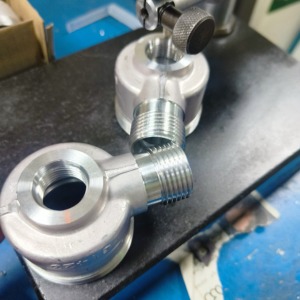
- Compliance Standards
Regulatory Alignment for Telecom-Grade CNC Components
All machining processes conform to industry-specific regulatory frameworks for electromagnetic compatibility, material traceability, and environmental durability. Certifications validate readiness for critical infrastructure deployment and OEM-level integration.
- Full traceability on material batches and machining parameters
- Controlled documentation for dimensional and geometric inspection results
- Compliance with environmental exposure, vibration, and thermal cycle test protocols
- Conformance to telecom-specific mechanical, electrical, and coating specifications
We machine materials to relevant ASTM standards, guaranteeing precise chemical composition, mechanical properties, and long-term reliability for demanding telecom environments.
Our machining strictly adheres to GD&T principles, ensuring exact dimensional accuracy, critical for signal integrity and reliable component mating in telecom systems.
We achieve specified surface finishes during machining, crucial for optimizing electrical conductivity, minimizing signal loss, and enhancing contact resistance in connectors.
Our machining processes accommodate features for effective EMI/RFI shielding, crucial for preventing electromagnetic interference and ensuring signal clarity in sensitive equipment.
- We export to 12+ countries
Frigate’s Global Presence
Frigate takes pride in facilitating “Make in India for the globe“. As our global network of Frigaters provides virtually limitless capacity, and through our IoT enabled platform your parts go directly into production. By digitally and technologically enabling “the silent pillars of the economy” MSME and SME manufacturing industries, we are able to tap the huge potential for manufacturing to bring the best results for our clients.

100,000+
Parts Manufactured
250+
Frigaters
2000+
Machines
450+
Materials
25+
Manufacturing Process

- Quality Standards
Quality Testing for Mold Machining Projects
To measure the roundness of cylindrical features, ensuring they meet tolerance requirements.
To check internal surfaces for flatness, critical for sealing and assembly purposes.
To identify burrs or sharp edges that may affect assembly or safety.
To ensure that complex profiles (e.g., contours, curves) conform to design specifications.
To check the topography and texture of the surface, ensuring it meets the required specifications for function or aesthetics.
To verify that the surface hardness depth meets the required specifications for wear resistance.
To measure internal stresses that could lead to deformation or failure during or after machining.
To verify grain structure, inclusions, and material consistency, ensuring the part meets performance requirements.
- Machined Component Showcase
CNC Machining Parts
We maintain stringent dimensional consistency through high-resolution spindle encoders, thermal drift compensation, and ultra-fine servo motor tuning. Delivering components engineered to withstand extreme mechanical stresses and fluctuating thermal environments.
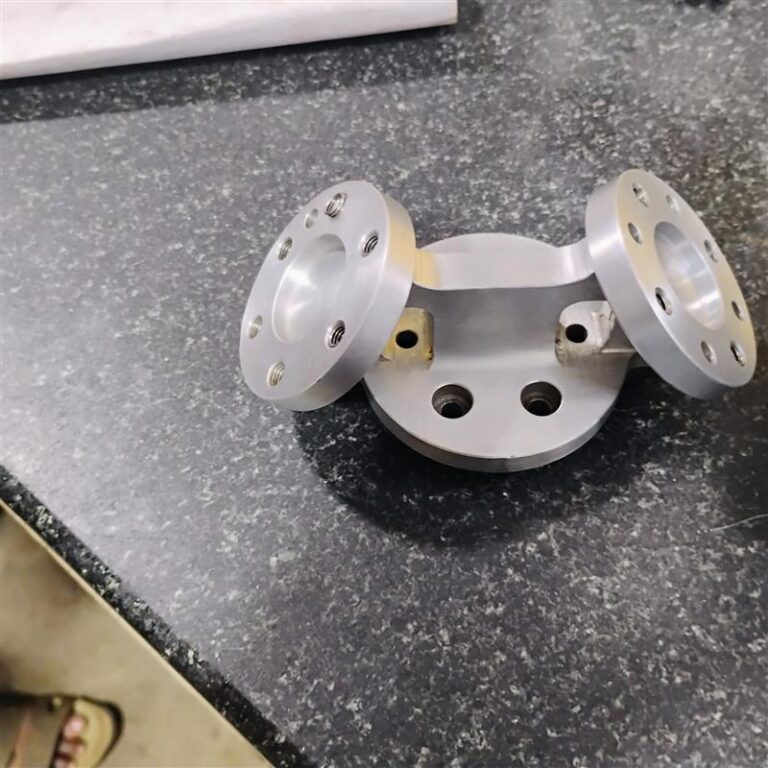
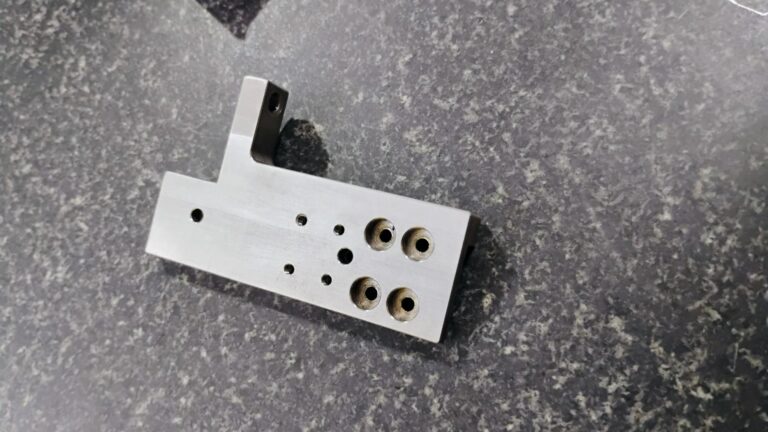
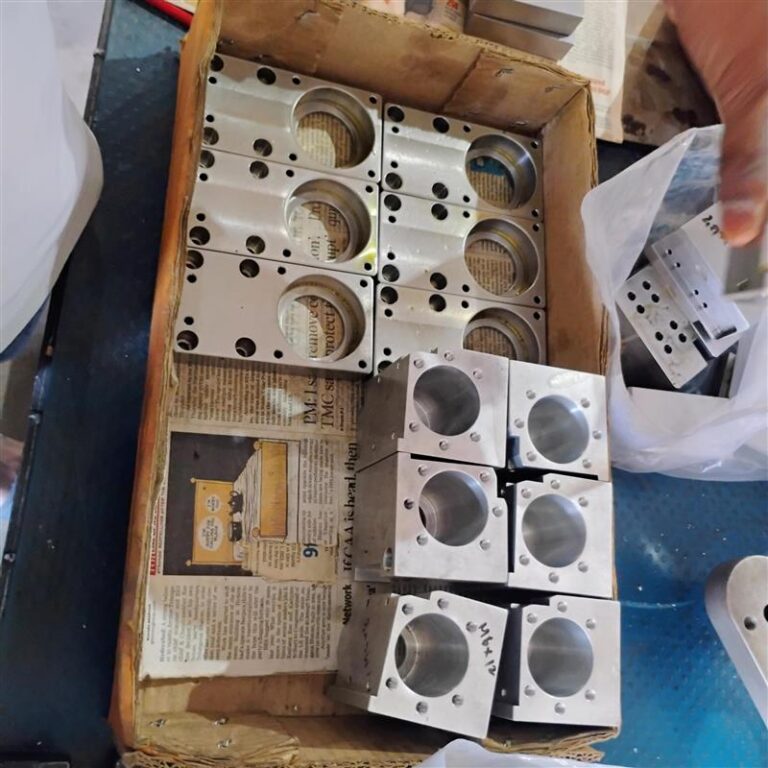
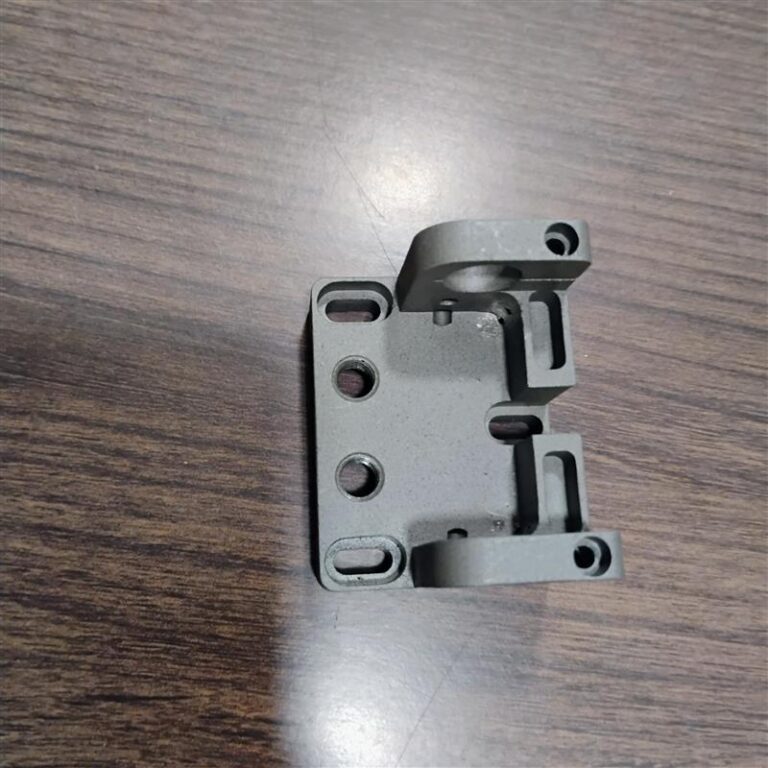
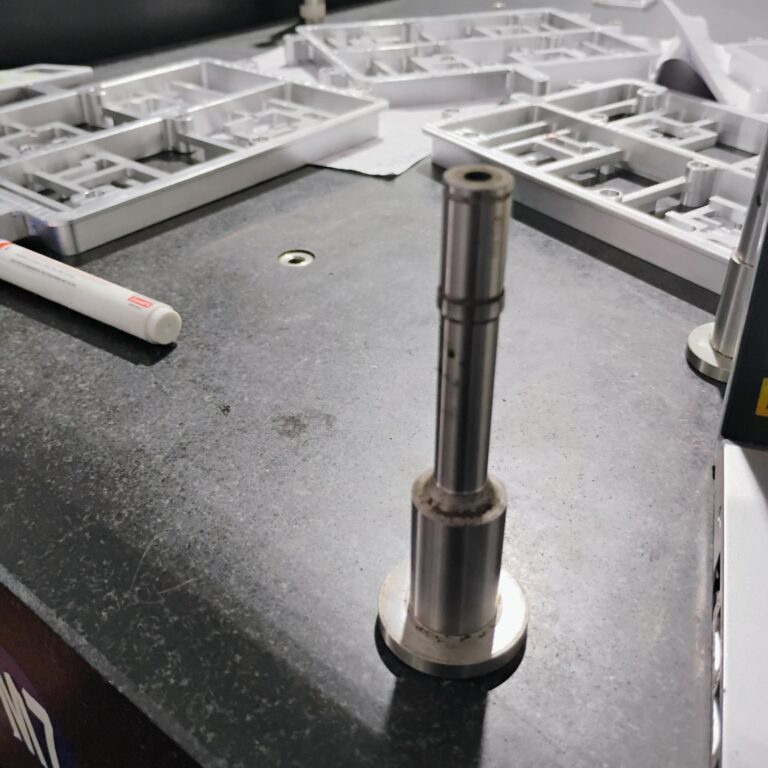
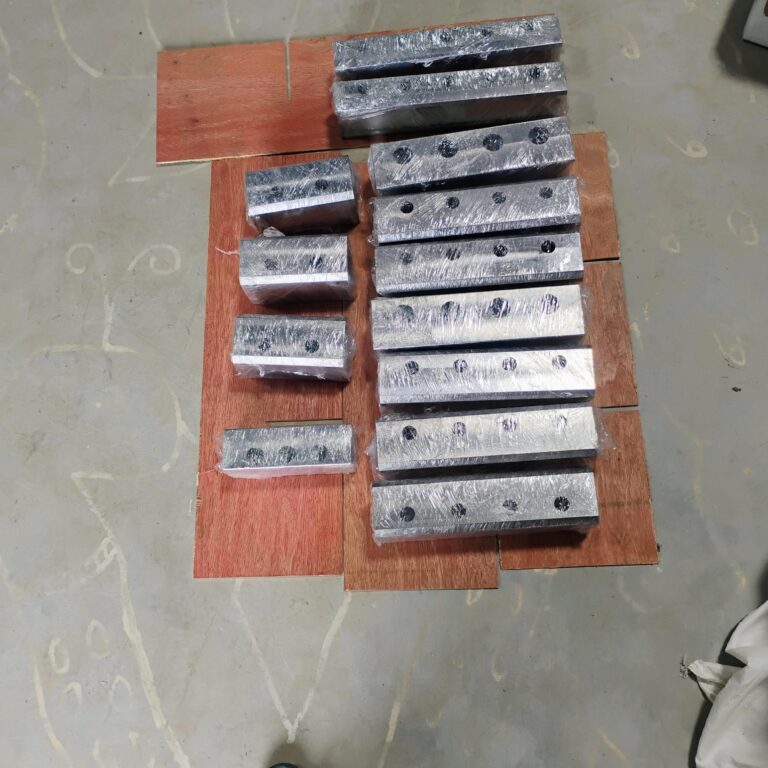


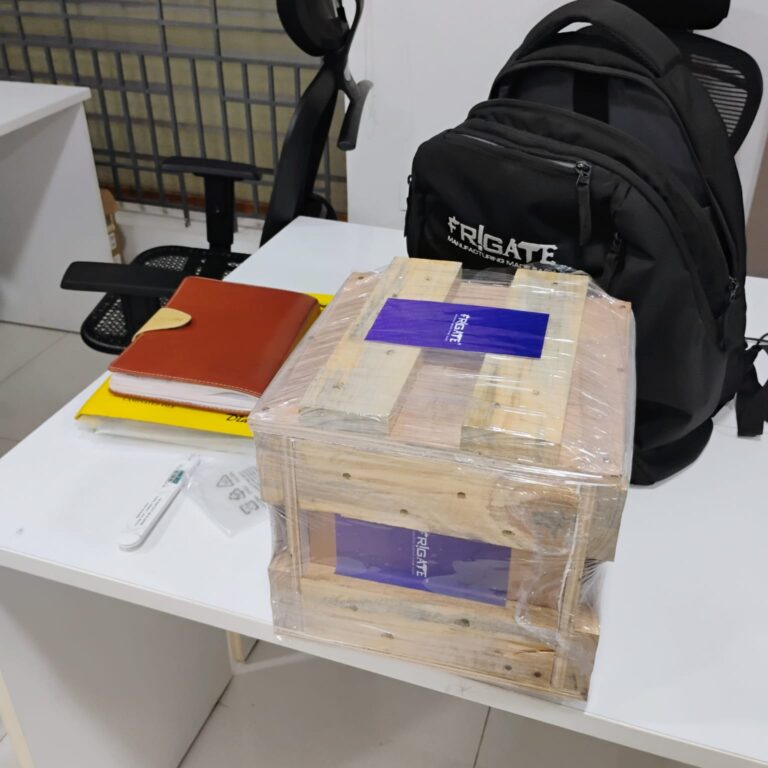



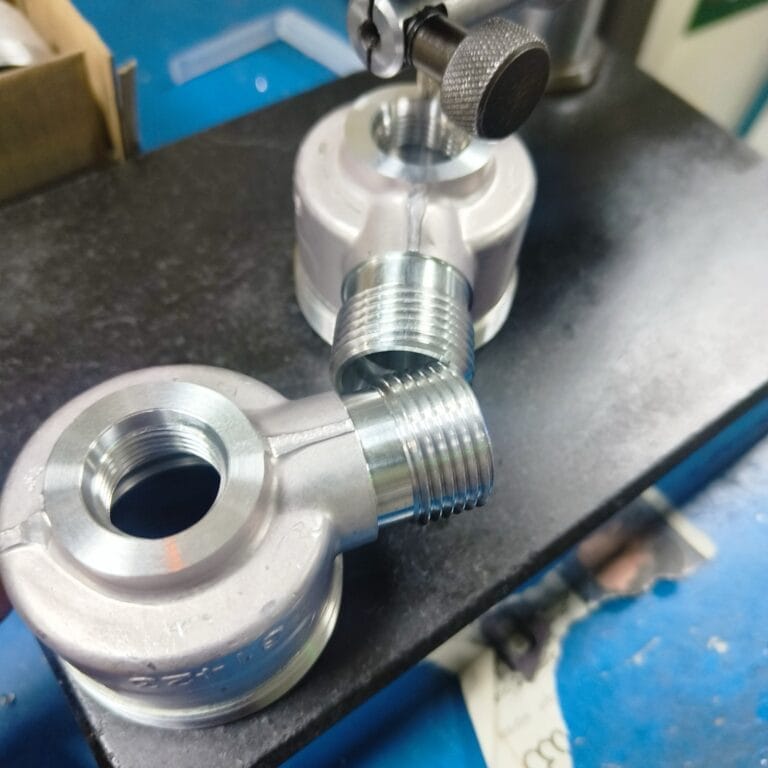


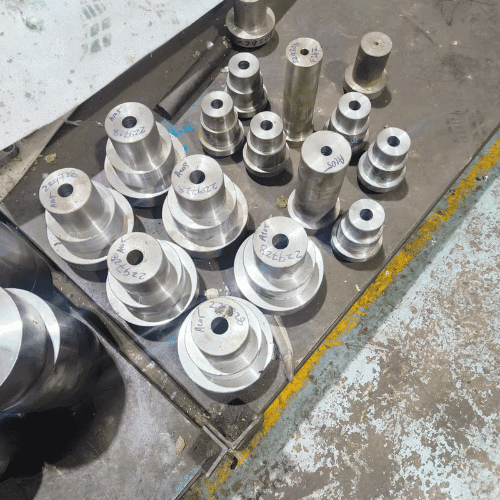
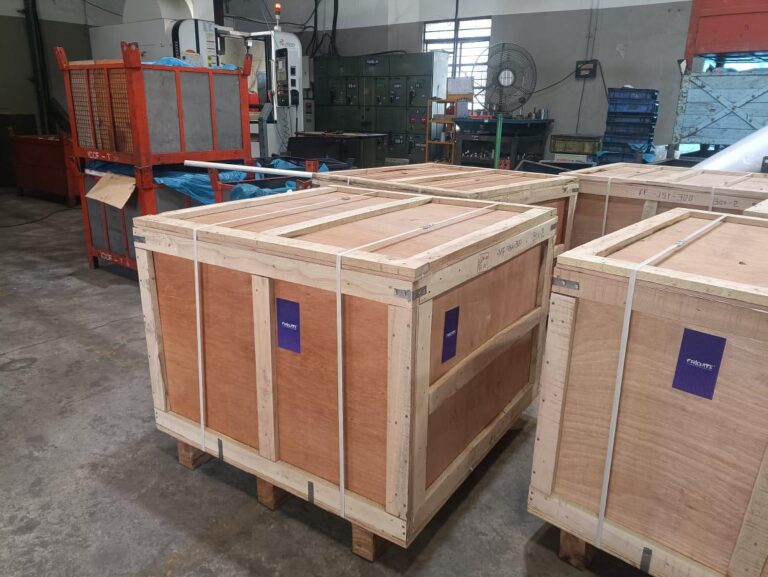
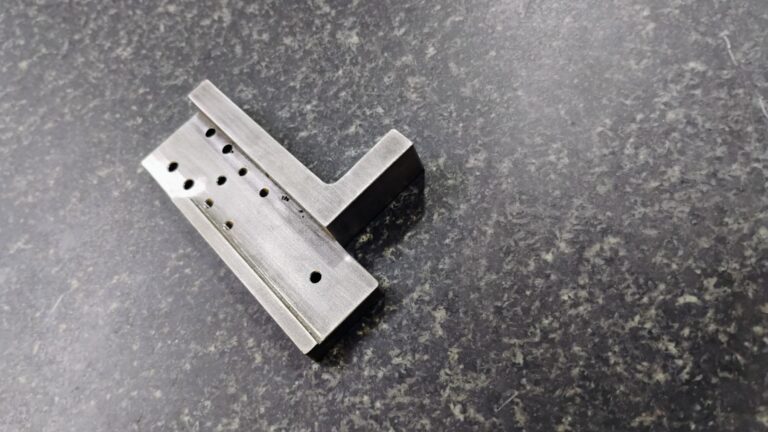
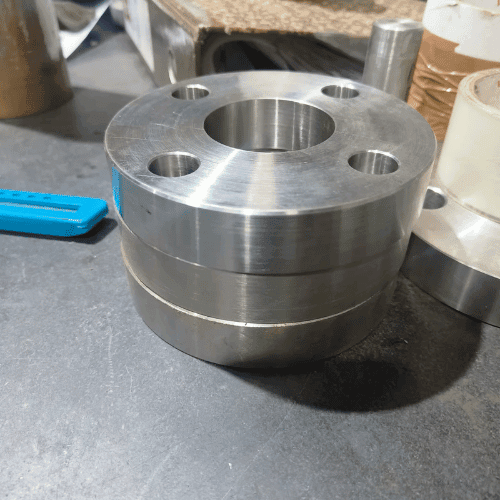
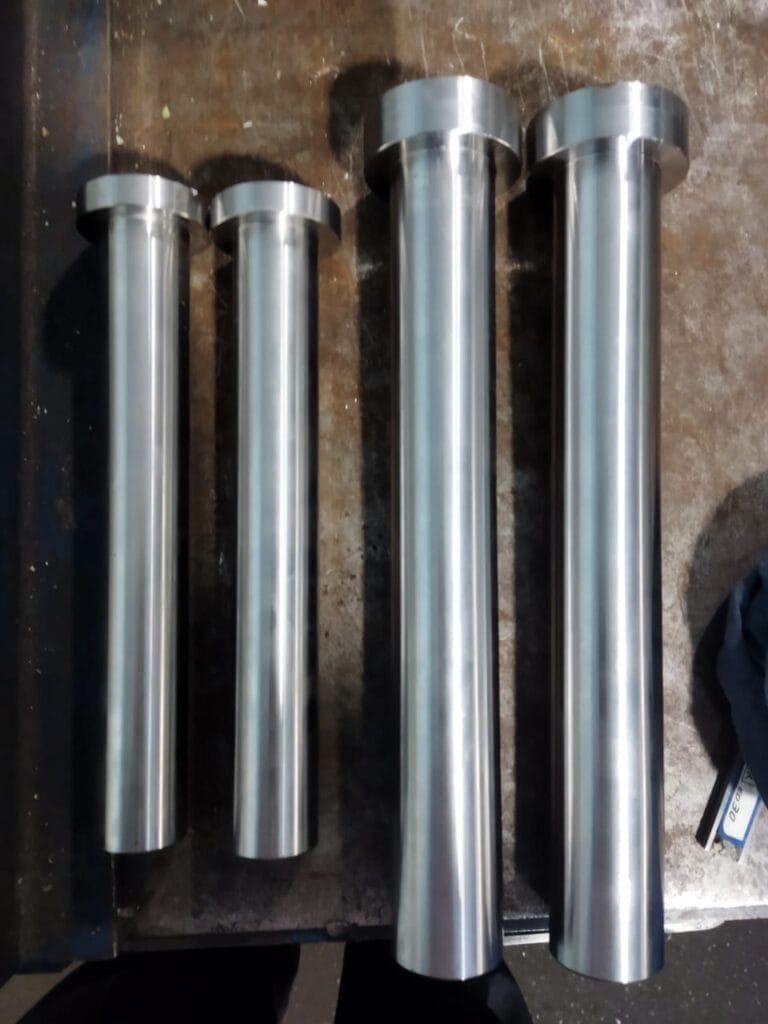

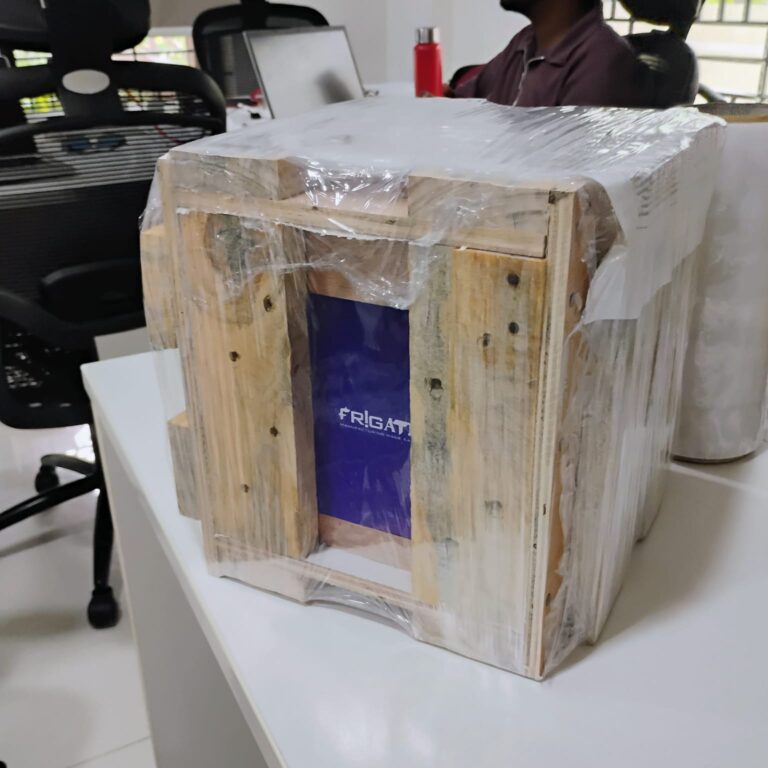

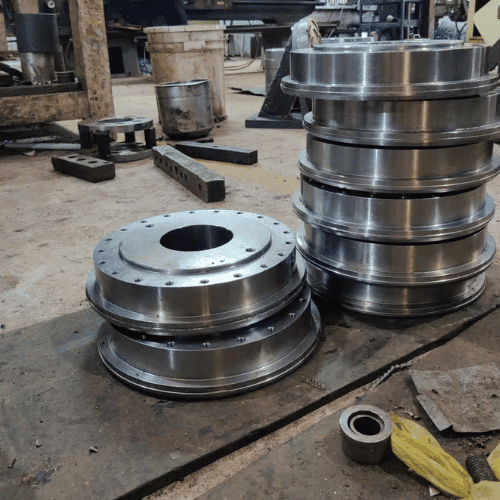
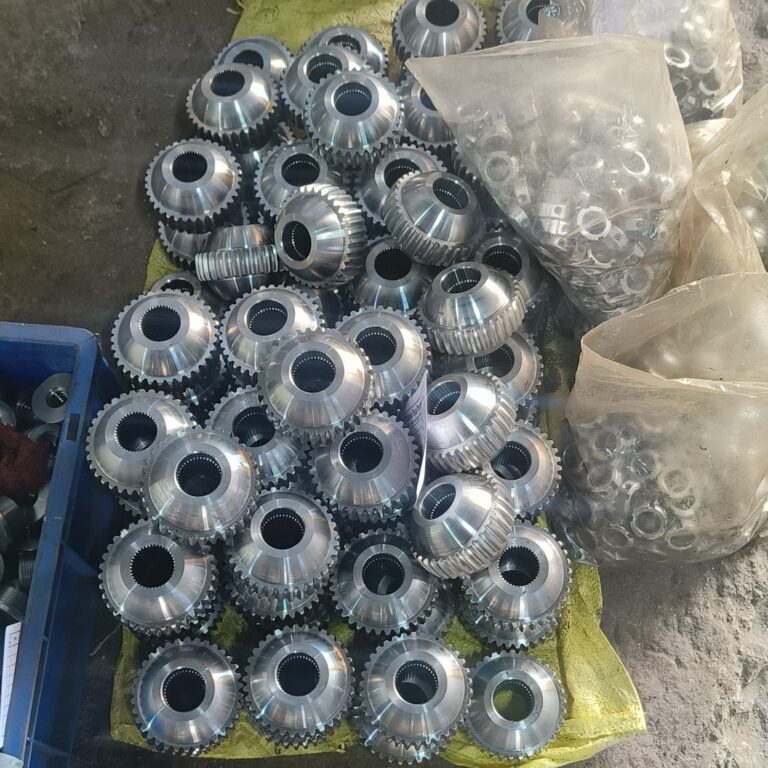
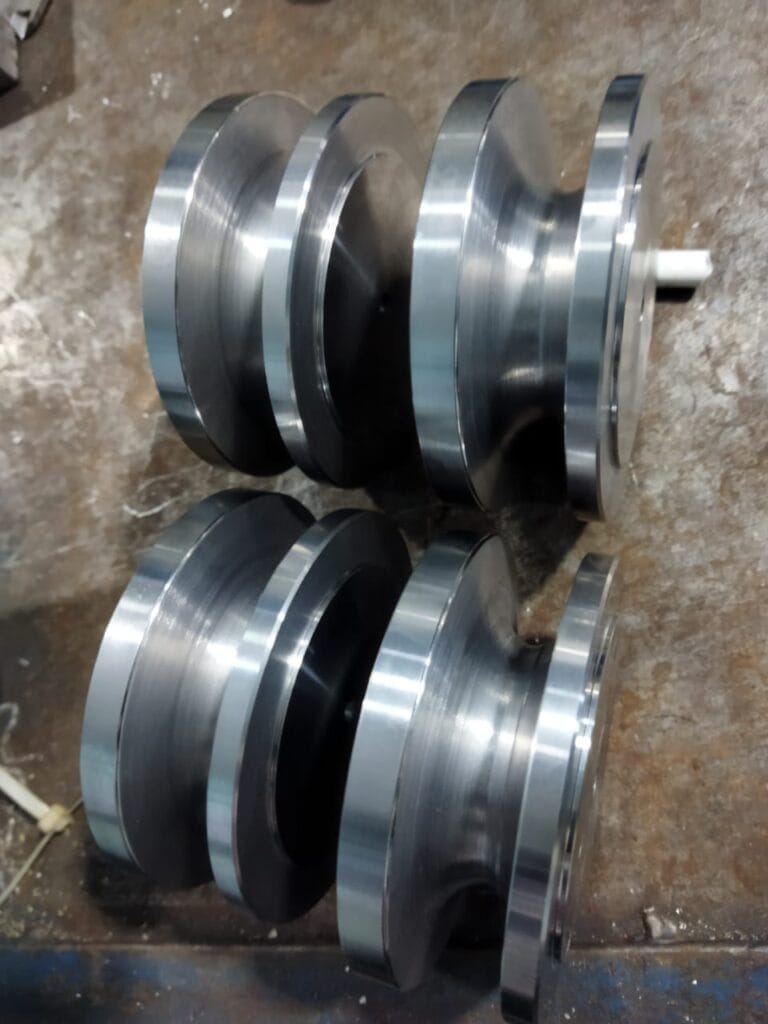
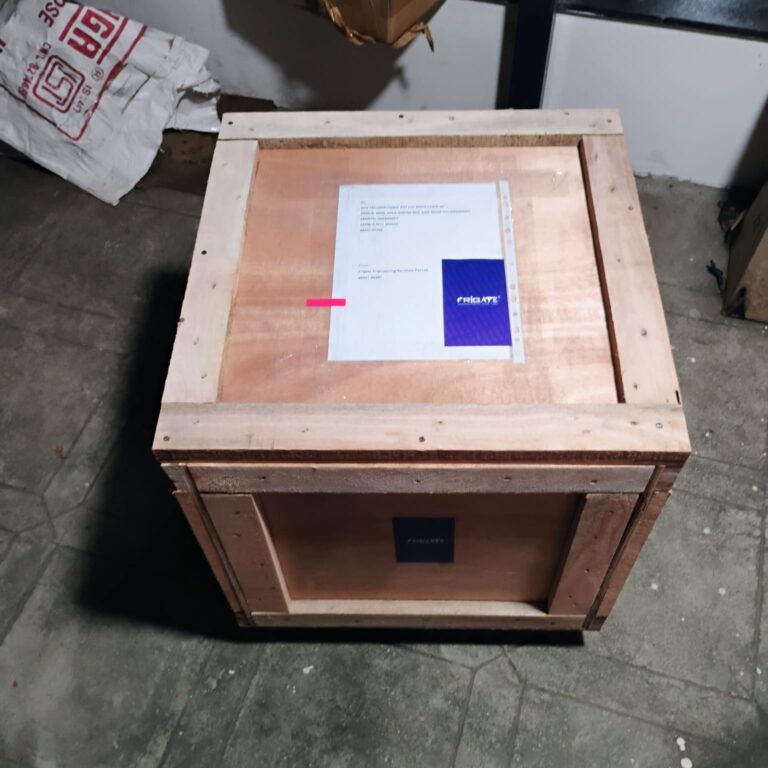
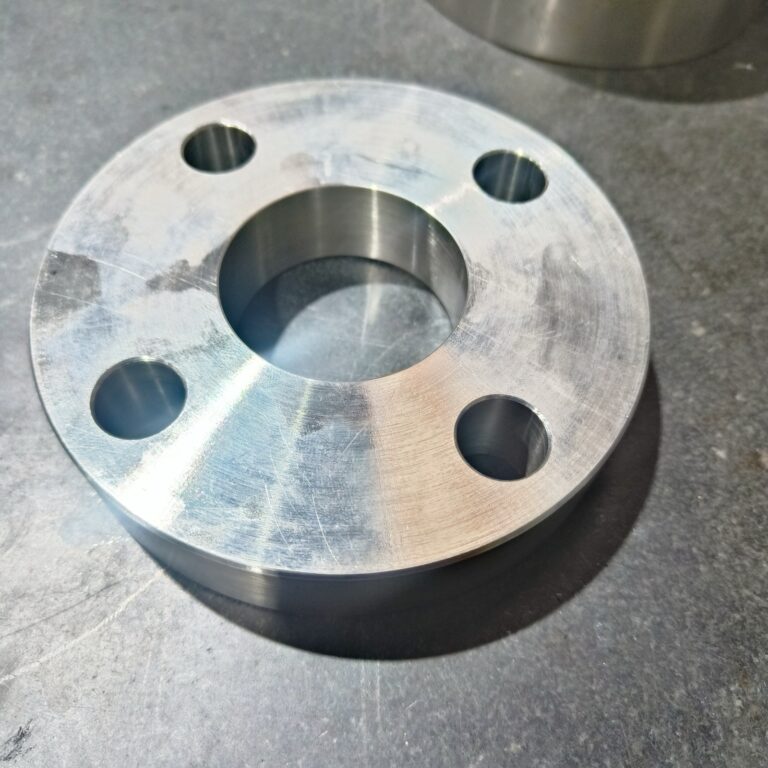
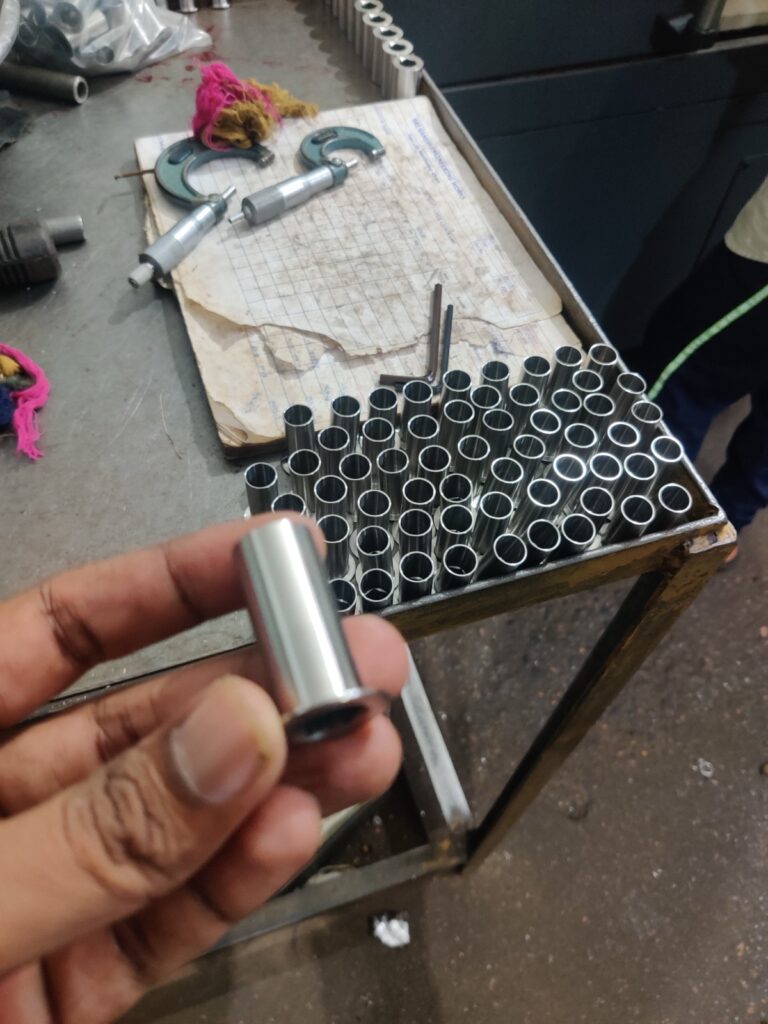
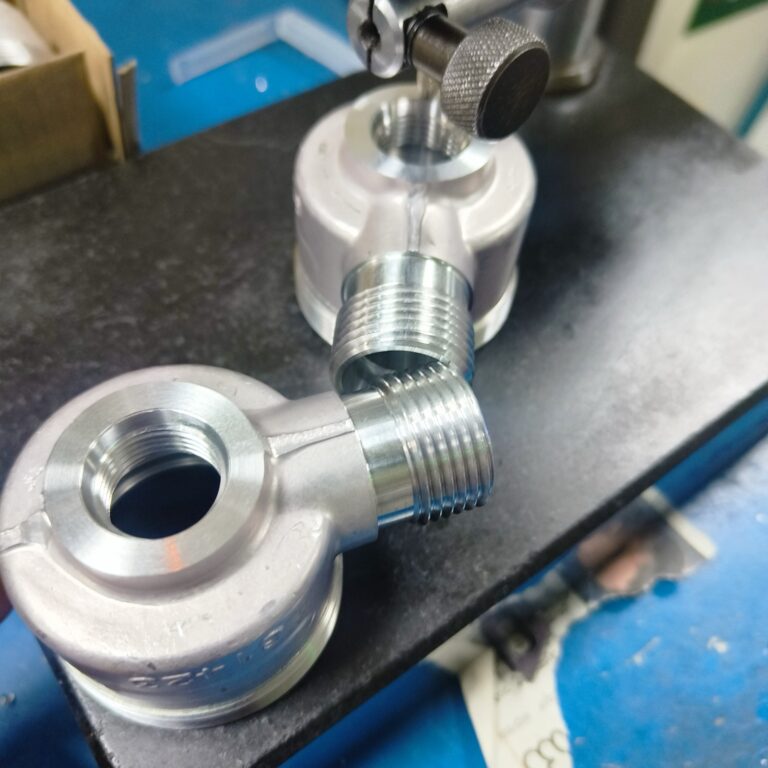
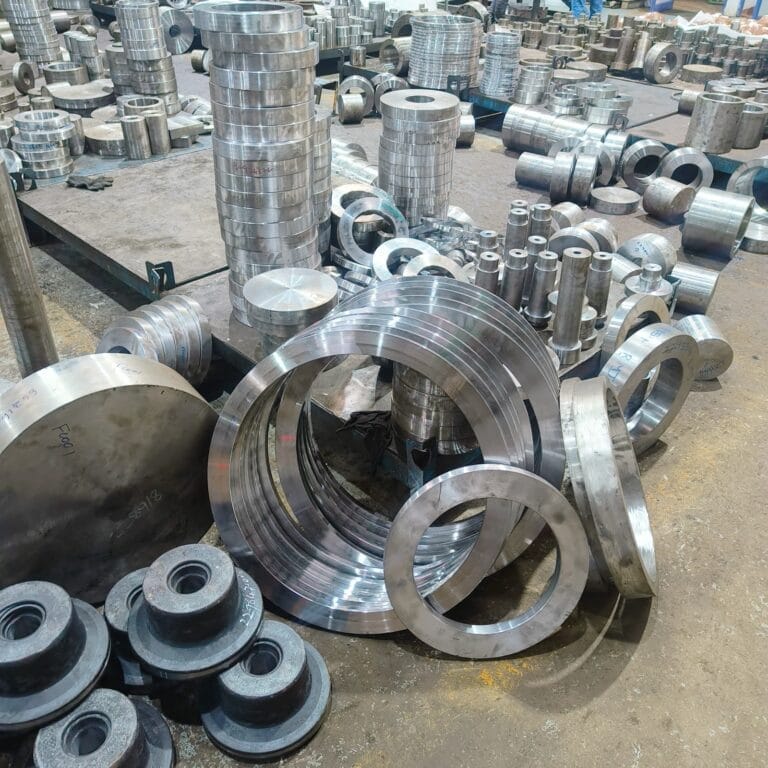
Other Industries We Serve
We deliver machining support across sectors that require consistency, material reliability, and tight dimensional control.
- Solid Progress
Our Manufacturing Metrics
Frigate brings stability, control, and predictable performance to your sourcing operations through a structured multi-vendor system.
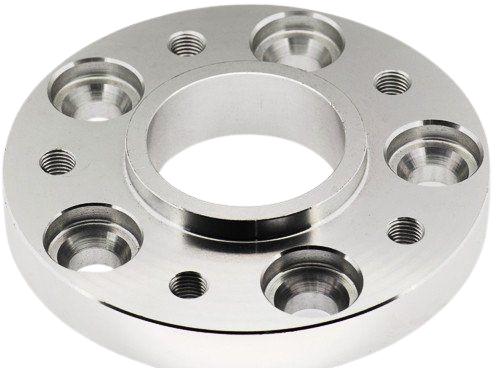
2.8X
Sourcing Cycle Speed
Frigate’s pre-qualified network shortens decision time between RFQ and PO placement.
94%
On-Time Delivery Rate
Structured planning windows and logistics-linked schedules improve project-level delivery reliability.
4X
Multi-Part Consolidation
We enable part family batching across suppliers to reduce fragmentation.
22%
Quality Rejection Rate
Multi-level quality checks and fixed inspection plans lower non-conformities.
30%
Procurement Costs
Optimized supplier negotiations and bulk order strategies reduce your overall sourcing expenses.
20%
Manual Processing Time
Automation of sourcing and supplier management significantly reduces time spent on manual tasks.
Get Clarity with Our Manufacturing Insights
- FAQ
Having Doubts? Our FAQ
Check all our Frequently Asked Questions in CNC Machining
Frigate performs roughing and finishing in separate passes using low-force toolpaths to avoid inducing residual stress. Fixturing strategies are optimized to allow controlled relief during intermediate steps. This approach prevents warping in large flat surfaces like heat spreaders and baseplates. Final part inspection includes surface flatness mapping using non-contact probes.
Frigate configures feeds, speeds, and tool coatings based on the thermal and mechanical properties of each alloy in the assembly. Transitions between copper, aluminum, and stainless sections are managed with coordinated tool changes. This prevents microburring and dimensional mismatch at material junctions. Thermal cycling tests are used to validate mechanical stability.
Threading operations are performed using synchronized live tooling with torque feedback monitoring. Position and depth are verified using optical inspection to detect minor deviations. Frigate uses digital thread profiling to capture pitch, flank angle, and crest rounding data. This ensures full connector compatibility with zero insertion force variance.
Internal shielding walls and pocketed zones are machined with reduced radial loads and precise Z-depth control. Structural ribs are retained where possible using toolpath simulations. Frigate verifies wall stiffness using FEA before release for production. This allows integration of EMI control without weakening the main chassis.
Internal channel geometry is inspected using a combination of CMM probing and endoscopic metrology. Toolpaths are verified with simulation for flow consistency and surface uniformity. Frigate controls surface roughness inside fluid paths to ensure predictable thermal transfer rates. Tolerances are held within ±0.02 mm across the full channel length.
We'd love to Manufacture for you!
Submit the form below and our representative will be in touch shortly.
LOCATIONS
Global Sales Office
818, Preakness lane, Coppell, Texas, USA – 75019
Registered Office
10-A, First Floor, V.V Complex, Prakash Nagar, Thiruverumbur, Trichy-620013, Tamil Nadu, India.
Operations Office
9/1, Poonthottam Nagar, Ramanandha Nagar, Saravanampatti, Coimbatore-641035, Tamil Nadu, India. ㅤ
Other Locations
- Bhilai
- Chennai
- Texas, USA
